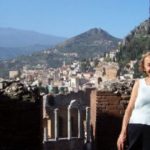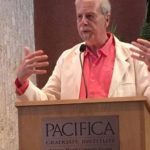
Call for Proposals
Jungian Society for Scholarly Studies
16th Conference of Research in Jung and Analytical Psychology
“Emerging…”
Portland, Oregon
Wednesday, June 27 through Saturday, June 30, 2018
We invite you to participate in an interdisciplinary gathering of scholars exploring themes and ideas around “emerging” and “emergence” in the context of Jungian and/or post-Jungian ideas and concepts
The conference will be held at the University Place Hotel and Conference center, which is located in Portland, Oregon.
Jung writes about the idea of “emerging” in a variety of ways. At times he regards it as an almost organic and regulatory part of the work of the psyche. For example, in CW 2, he observes, “Without conscious censure, the emerging part of the complex is suppressed by the feeling of being directed not to betray, which is present in consciousness and from which specially attuned inhibitions arise” (para. 417). Here the complex reluctantly attempts to emerge into consciousness and as such is an ally in the work of individuation. At other times Jung writes of emerging as a site of opposition. In other words emerging is not a process of organic growth, but is better thought of as an oppositional response. In the same volume as the previous quotation he comments, “The more vivid an image is, the stronger are the inhibitions emerging from it against everything not associated with it: the attention will therefore be all the less prone to be divided” (para. 417). It is this latter idea that appears in Jung’s later writing and indeed seems closer to the general tenets of analytical psychology. In CW 6, para. 459 Jung notes that, “a symbol emerging in dreams is rejected…and even provokes an antagonistic reaction corresponding to the invasion….” Implicated in this is the resistance produced by consciousness to its own emerging growth. This observation feels closer to Jung’s somewhat enigmatic idea that individuation is a work against nature, or put another way, a work that seeks to transcend nature.
Jung also writes about emerging as something that looks to the past for ideas in order to help with emerging in the present. In the Tavistock Lectures he offers a rejoinder that seems prescient in terms of current interests in neurology and psychotherapy: “In so far as we psychologists are emerging from chemical and material conceptions of the psyche, we are taking up that torch again . . . for alchemy was the work of the doctors who were busy with the mind” (CW 18 para. 380). Typically, Jung manages to fold together past, present, and future as he offers intuitive insight into the complex emerging dynamics of psychological growth and development.
Theories of emerging and emergence are welcomed to reframe and understand the terms themselves. Emergence might therefore be seen as part of an organic system; as integral to the work of individuation; as an act of resistance–political and/or cultural , psychological, and even pedagogical–and also as a call to acknowledge the past interpenetrate the present as means for emerging new ways of being and doing, and bringing fresh insights into consciousness.
As a conference, we are mindful of the ways in which new insights will emerge during the event itself. As one expression of our collective intelligence and care for the world, our collective body of knowledge, so to speak, will need tending. We recognize the need to care for each other as community. It follows that proposals for the integration of somatic work either in the form of workshops, or shorter interventions of possibly just a few minutes that could be inserted into the conference program are welcome. Proposals for social dreaming matrix facilitation are also invited. Possible areas of inquiry include but are not limited to the following:
- Writings of Jung and/or post Jungians about the emerging psyche
- Contemporary paradigms in emerging theory that create new possibilities for understanding Jungian perspectives on human consciousness, symbolic systems, and psychological development
- Scholarly frameworks for action based on Jungian and/or post-Jungian ideas
- Ways that emerging theory can open up psychological understanding of societal problems with implications for responsible political action
- Emerging analysis, critique, synthesis, and/or dialogue about Jungian ideas
- Emerging debates around Jung and race
- Emerging discourses of Jung and gender and the viability or otherwise of concepts such as the anima and animus
- Psychic balance within complex and continually changing personal and social environments
- Somatic practice as a site of emergence
- Research designs that explore psyche within the context of emergence
- Emerging ways of knowing and research paradigms and/or methodologies
This list is intended only as suggested entry points into the conference theme. Presentations that contemplate emerging and emergence from whatever entry point are welcome
Program Committee: Alexandra Fidyk, Sukey Fontelieu, Luke Hockley, Michael Lukie, Inez Martinez, Robert Mitchell, Elizabeth Nelson, Susan Rowland, Susan Wyatt
Site Coordinator: Lisa Pounders
Proposal Submission
The program committee invites submissions for:
- single or multi-authored scholarly papers
- panels with three or more presenters
- roundtables (recommended for presenters who want to receive feedback on work in progress or want to engage in an in-depth discussion about their topic)
- experiential workshops
- creative practice
Submissions should be mailed to sjw.jsss@gmail.com by December 15, 2017. All submissions will be acknowledged. The program committee will review your proposal and notify you whether it is accepted within one month of the submission deadline. Details of the host site and conference registration will be made available through the JSSS website www.jungiansociety.org
Proposal Format
Please submit proposals in Word (not PDF) format. Your proposal must include for all presenters:
- Last name
- Full name as you wish it to appear in the program
- Registration Status
- Regular
- Student
- Email address
- Institutional affiliations (universities and/or professional bodies)
- Preferred presentation format (the committee may reallocate presentation formats other than those requested).
- Paper (20 minutes–discussion time will be added).
- Panel (20 minutes for each presenter–discussion time will be added).
- Roundtable (30 minutes with 10-15 minute presentation and discussion time included). Note that a/v will not be available for this format.
- Experiential workshop (60 or 90 minutes).
- Creative practice
- Title of presentation
15 words maximum
- Proposal
350 words maximum
- Works cited in proposal
- Abstract as you wish it to appear in the program
50 words maximum
- Biography (including preferred title) as you wish it to appear in the program.
60 words maximum




